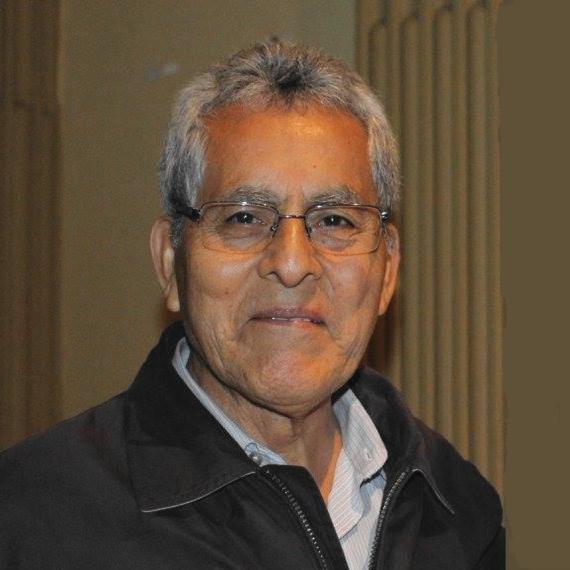15.El proceso de promoción de los derechos de los Pueblos Indígenas en la ONU, por José Carlos Morales / The process of promotion of the rights of Indigenous Peoples at the UN by José Carlos Morales
15.El proceso de promoción de los derechos de los Pueblos Indígenas en la ONU, por José Carlos Morales / The process of promotion of the rights of Indigenous Peoples at the UN by José Carlos Morales
Esta presentación fue transcrita y subtitulada en su idioma original. Con este fin, tienen que hacer clic en el botón 'CC' que se encuentra en la parte de abajo, derecha del video. También pueden activar los subtítulos en otro idioma, y tienen que hacer clic en las opciones del video, después seleccionar la parte de los subtítulos, más adelante escoger la opción de 'traducir automáticamente' y finalmente elegir el idioma de su elección.
Durante su presentación, José Carlos Morales hace un resumen de los 36 años de lucha indígena hasta hoy. Establece la Conferencia de 1977 como la piedra angular gracias a la cual todos los siguientes logros acontecieron. Nombra todos los hitos, estudios y órganos que obraron a favor de los derechos de los Pueblos Indígenas, entre los cuales el Grupo de Trabajo sobre las ‘poblaciones indígenas’, el trabajo sobre la Declaración de la ONU, el Convenio 107 de la OIT, el Foro Permanente, el Relator Especial y el Mecanismo de Expertos.
José Carlos Morales explica su compromiso en el Mecanismo de Expertos y los documentos que resultaron de este órgano relativo a la educación, la toma de decisiones y las culturas y lenguas de los Pueblos Indígenas. Menciona también cómo estos logros en los proprios órganos de la ONU permitieron abrir puestas en otras agencias internacionales y enlaces con grandes empresas. Alude a la Corte Interamericana de Derechos Humanos ya que está convencido que sus resoluciones pueden servir como precedentes.
Realza el mérito de las organizaciones no gubernamentales gracias a las cuales los Indígenas pudieron entrar a las Naciones Unidas. Afirma que: «Cosas que son cambios que van a durar muchísimos años, no se logran de la noche a la mañana, pero en ese camino vamos.»
//
This presentation has been transcribed and subtitled in its original language. To that end, you have to click on the 'CC' button at the bottom, right hand side of the video. You can also activate subtitles in another language, by going into the settings of the video, then clicking on the subtitles section, then choosing the option 'auto-translate' and finally the language of your choice.
In his historical account, José Carlos Morales sums up the 36 years of indigenous struggle they have carried out until today. He affirms that the 1977 Conference is the cornerstone that enabled all the progress that has been made subsequently. He mentions all the milestones, studies and bodies that contributed to the rights of Indigenous Peoples, among which are the Working Group on ‘Indigenous Populations’, the work on the UN Declaration, the Convention 107 of the ILO, the Permanent Forum, the Special Rapporteur and the Expert Mechanism.
José Carlos Morales explains his involvement in the Expert Mechanism and presents the documents that were issued by this body concerning Indigenous Peoples’ education, decision-making, cultures and languages. He also explains how these achievements in the UN bodies themselves provided opportunities with other international agencies and make contacts with large companies. He mentions the Inter-American Court of Human Rights, for he is convinced that its resolutions can serve as precedents.
He highlights the merits of the non-governmental organizations which made it possible for Indigenous Peoples to enter the United Nations. He states that: “Long-term changes do not happen overnight, but we are on our way.”
United Nations, Geneva, Switzerland / Naciones-Unidas, Ginebra, Suiza


